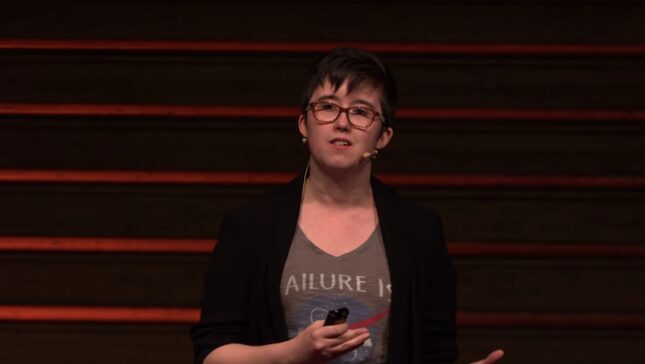Lyra McKee Made Politics Feel Personal
Latest

At 29, investigative reporter Lyra McKee was already known for giving voice to the powerless. Her journalism was a form of activism aimed to mold the world into a more tolerant place by exposing the horrors and atrocities more easily ignored.
And McKee was killed doing this work. On Thursday night, McKee was covering militant protests in Northern Ireland, where police had suspected that extremists had been stockpiling firearms and explosives; they told the New York Times that, after the searches, a riot erupted and more than 50 gasoline bombs were thrown. McKee was shot and killed by a alleged gunman who’d been firing at police.
Many Catholics in Northern Ireland identify as republicans, meaning they want Northern Ireland to secede from the United Kingdom and join the Republic of Ireland. Police believe a fringe group of extremist republicans are behind the attacks. “We are treating this as a terrorist incident, and we have launched a murder inquiry,” assistant chief constable Mark Hamilton told the New York Times. “At this stage, we believe her murder was carried out by a violent dissident republican.”
McKee’s last tweet reportedly described the chaotic scene:
-

-

-

-

-

-

-

-

-

-

-

-

-

-

-

-

-

-

-

-

-

-

-

-

-

-

-

-

-

-

-

-

-

-

-

-

-

-

-

-








































